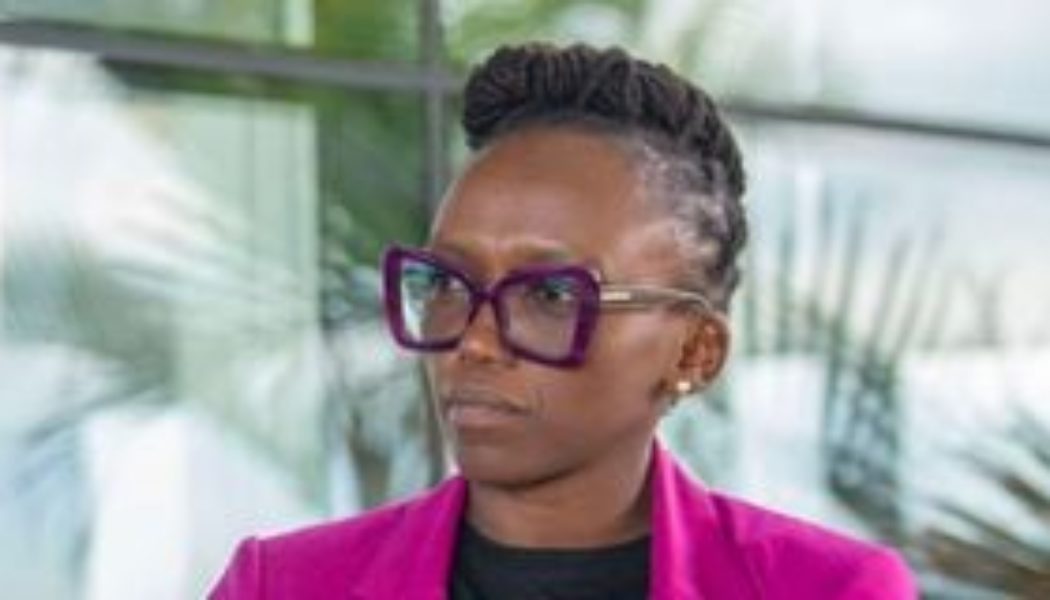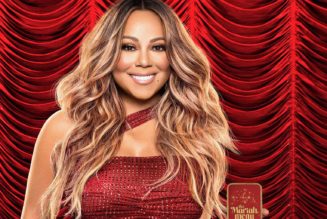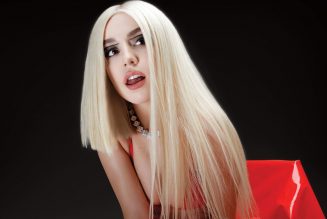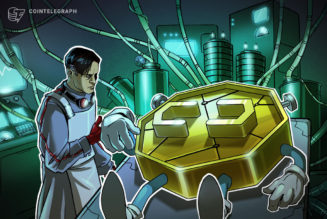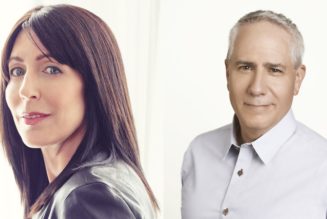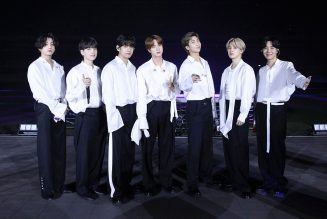Maryanne Ochola is walking on sunshine. The managing director, Endeavor Kenya, is a magnetic force of energy.
She knows all about pain too. The story unfolds: while losing her father; she was losing her marriage, too. But she did not lose her smile.
I pause to think about the courage it takes to reveal oneself fearlessly. It takes courage to lean in, rather than walk out, so she dug in: cooking her “world-famous potatoes”. She took up knitting. She went back to the theater.
What’s an exciting thing you have been doing lately?
Just exploring different threads of things. I am a connector at work, when you work in ecosystem building, trying to get venture capital for founders who want to build companies at scale. You have to know everyone, and that makes you a generalist. I have been immersing myself in the climate talk, and also as a multipotentialite, doing things that are connected. My friend is hosting a monologue by John Sibi Okumu—she is a thespian and I remember we used to act together at Moi University. She recently hosted us for a focus group discussion, and I loved it.
Acting, I could never have guessed that. How was that like?
My first gig was as an actor with the Mbalamwezi Players. It was a poetry-dance-music show. I still have the photo on my Instagram of me doing what I loved and getting paid for it. It was only Sh4,000 after weeks of rehearsals but my parents were in the audience. Do you know that I was supposed to be in a show on KBC directed by Kanze Dena? It never took off since we never got sponsors. My dad learned about me coming to Nairobi to act, and he was pissed, I had to stop. My children are teenagers and they both love the stage, they are in school productions every year, so I am living vicariously through them. I will go back to the stage; I know I will.
Do you remember your first time on stage?
In primary school at Peter Kibukosya School in Umoja II, I used to do public speaking every year. I have been on stage for as long as I can remember. It helps me even now because everything is a script. Speaking is a performance and everything is a stage to deliver a message.
Have you maintained that creative energy by picking up an instrument, or organ, “multipotentiality,” as you called it?
I don’t play but we have music night at home every couple of Fridays. The children play the instruments and then I sing. But I also support my friends who are in the creative sector.
When did you realise that your children had this creative bone in them, and is it from you or their father as well?
It’s all me. My daughter can weave stories, especially when you catch her doing something she shouldn’t. I read a lot of books and I was reading Julia Quinn, who wrote Bridgerton, and she says how she became a writer is by weaving stories. It’s double-edged…the negative side is you are making up stories but then again, she is really creative. My son, I thought, he’d become a computer scientist, then he went to high school and he chose theatre, music, French, and Spanish, and I was like, okay! [chuckles]
Were you like that as a child as well?
Yes! I was in almost all of the clubs, even at Moi University. I even played netball at national level when I was at Pangani Girls High School. You can tell I was in Pangani because we are all a bit loud, haha!
I can tell. If you could pick a moment from your childhood that is a good representation of your life, what would that be?
I was active, I always had somewhere I was supposed to be: a rehearsal, church (I was raised Catholic) coming up with a play, I had a lot of projects going on and I never learned to just chill. But I guess it’s also in my name…I am called “Nyawira” which means work or the one who works. I am always working towards something.
What do you miss most about your childhood?
You could just be. There were no guardrails. There was no pressure to be, there was just freedom. My parents were very open in that regard too.
Do you remember your nickname?
I am a firstborn, and I was quite entitled, according to my father. He used to call me a “brat” but he added an “o” at the end to make it “Brato.” It was supposed to be endearing [chuckles]. No, it’s not!
What remains unchanged about Brato since childhood?
That fierce stubbornness. And it gets in the way even in my relationships. I set my mind and I think it is achievable and this is how it’s going to be done. At Moi University, I ran for Muso [Moi University Student Organisation] as the catering director, and my slogan was “Usafi na Mapochocho” so people started calling me “Mapochopocho.” When my father heard I was running for office, he summoned me and gave me an earful about university politics and told me, “Remember, Jesus died at 30.” You will have a short, brutish life, haha! Where would I be if I didn’t have the guardrails on now?
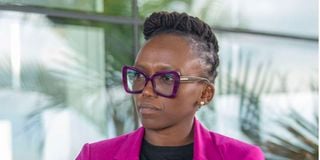
Maryanne Ochola says the thing you are worried about right now, five years from now, it won’t matter.
Photo credit: Pool
Assuming he is alive, what does your father think of Brato now?
He passed on but I remember him telling me that he wished he had half my courage, reflecting back on opportunities they didn’t take. That was very touching to hear considering they raised me.
How does your father’s passing change your memories of him? Is it any different than when he was alive?
My father would tell me, “Nyawira, you can be anything you want to be.” That was my anchor. When he died, my centre shifted, he was the first close person I lost. Now I feel like he is the wind under my wings.
What is your favourite memory of him with you?
Going to Uhuru Park and sitting there, watching the boats and eating sausages and the hawks coming down and grabbing the sausages and how he would be so protective. Or how he would remove the bones from the meat for his firstborn child. Here’s a fun little story. There was a time he was the PTA [parent–teacher association] chairman, and we would clean the classes as pupils, but there was a boy who would refuse to clean, citing the girls are the ones who are supposed to do it. My father was called and told I was fighting that boy. He gave me an earful in front of the teachers, but when we went home, he told me he was only doing that because of the teachers.
Did you beat up the boy though?
Haha! I remember his name, Alex Amaguna. He tried to hit me, but I was done, done. We were on the floor, and it was all out war.
How are you raising your children differently from how your father raised you?
The ethos is the same—you can be anything you want to be. I tell them to do everything to see what sticks. I remember there were a lot of religious activities, but we are not very religious by design with my children. A more flexible value system but not morally flexible.
Did you end up marrying your father? Your father was a springboard to be anything you want, but sometimes our spouses can be a cage. What is your experience?
Because of that, after 10 years of marriage, I was done. Girls like me raised by secure fathers need to meet a man who has also been raised securely, one who is not insecure because of all this that you are, especially when you have a big personality with opinions. For that reason, it just didn’t work, Eddy. This is why I try to raise my children securely so they don’t become those sorts of partners.
At the risk of intrusion, how was that separation conversation with the children?
It was tough in the beginning. The other day we were taking a walk, and the children were like, “You two are very different.” Children are smarter than we think they are. They can see when you are staying and not being yourself. Ultimately, you need to remember that children can see. They care about you both.
How did you remain sane throughout that season and not let the personal spill over to the professional?
You are one person, so you can’t be one thing at work. Be very open when you are having challenges. Talk about it or ask for support. I told my boss what was going on, and my team as well. Interestingly, my team later came and told me things that they were struggling with, and they said, “You gave us permission when you opened up.” Remember, you are a human being. If you are in a position of influence, and there is a lot of stigma around a topic, and you bring it up, that gives people permission to do it.
I recently watched author Simon Sinek and comedian Trevor Noah in conversation, and they said, “You build trust by asking for help rather than offering help.” Did you actively seek help?
That’s such good phrasing. There is a power in vulnerability and humanising yourself—people trust you and they come to you. When I told the team, they started coming to me. My divorce was happening at the same time as my father was dying. I was running from the hospital to court. I even got a health issue, and my doctors couldn’t discover what the problem was until the doctor asked me what was going on in my life. I have no image to protect, people see me for me.
What did you take away from that experience?
We are all winging it. When you realise that it makes you more resilient when life happens and you have a faster time for recovery because you do not spend it in denial. Life is hard, and it’s not just for you. It’s hard for everyone.
How do you take care of Maryanne?
I cook. I read. I knit. We play lots of music in the house. Joyous creative pursuits.
What’s your signature meal?
I am a girl from the mountain, so I can make warus [potatoes] six different ways.
Oh God…
yes haha! Every meal has to have waru. This is a commandment, and the waru is going to pop. Haha!
Other than potatoes, what’s your idea of happiness?
I am always looking forward to something. That’s the magic. Whether it is a concert, pop-up market, my daughter’s golf tournament, or my son’s play on stage, et al, this life is so much worth living.
What are you looking forward to right now?
I am away for two and a half weeks. I have had a tough but productive trip. I am in New York now, going to Amsterdam next week, then Madrid. When that ends, I can’t wait to see my children. I am looking forward to the glorious weather of December and Christmas in Nairobi.
What do you need more of in your life?
Good question. I need to build more time to watch more plays, and concerts—more time.
What fear are you working to overcome?
When you are always looking toward the next thing, there is always anxiety in the work. Will people come? Will the event succeed? Being a bit less hard on myself. You don’t have a point to prove to anyone. Carry less.
What is the soundtrack of your life now?
Oh my God. Haha! I like Gramps Morgan’s People Like You. I have built a good circle around me, people that I love. There is always someone around me willing to lend a hand.
What are you apologising to yourself for?
For not being more compassionate with myself.
And what are you thanking yourself for?
For never losing laughter and joy in little moments. I am not a Debbie Downer, people who get in the room and suck the energy. I am sunshine, even through tough times.
If you could tell me just one thing, what would you tell me?
You are going to be okay. You see that thing you are worried about right now, five years from now, it won’t matter. Trust me. You are going to be fine. I need to remember that more often too.
